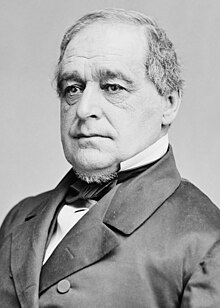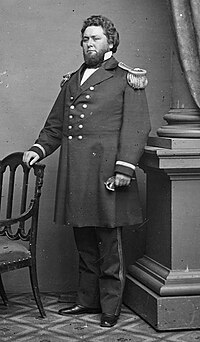Chapter One Hundred and Fifty Dollars and Sense
Chapter One Hundred and Fifty
Dollars and Sense
Dollars and Sense
From "The Cotton Economy of the Nineteenth Century" by Jude Mackinnon
Harvard Press 1999
“When we look at the southern economy immediately postbellum it is easy to find a number of factors which caused its persistent lethargy…”
From "The Economic Legacy of the Civil War" by Anne Krychek
Peck University 2013
“The low southern income figures for the post-bellum period have been a perennial puzzle to economic historians…
When great emphasis is placed on the slow growth of the international market for cotton one must not be mistaken about its import. In fact many economists view this as a red herring. The rate of growth of demand in the cotton market certainly declined precipitously but that is less relevant given the price increase. In fact during Lincoln’s second term the price of cotton was higher in both absolute and relative terms compared to the 1859 price…
Rather greater emphasis must be placed on the productive efficiency of the major institutions of southern agriculture and on the effects of emancipation on the labor supply and productivity...
Many former slaves withdrew from the labor force or reduced the hours they were prepared to work. Internal migration within the southern states saw large net reductions of the former slave populations in Virginia, North Carolina and Kentucky. There would be significant increases in South Carolina and Mississippi during this period but in many cases these former slaves eschewed further agricultural based work for urban employment…
It should be borne in mind that agricultural income represented 80% of the total income of the five main cotton states and cotton alone accounted for about half of this share…
The effect of the damage caused by the war itself is often disputed. It is agreed that the war caused enormous destruction, disruption and dislocation of the economy of the south. What is disputed is how persistent this effect would be. Many economists, led by Edmund Walker’s 1960s thesis, believe the economic effect of the Civil War (excluding emancipation and proscription) was negligible by 1868. Yet many other economic historians argue that emancipation, proscription and further the influence of the Bureau of Collections would persist for decades…"
Harvard Press 1999
“When we look at the southern economy immediately postbellum it is easy to find a number of factors which caused its persistent lethargy…”
From "The Economic Legacy of the Civil War" by Anne Krychek
Peck University 2013
“The low southern income figures for the post-bellum period have been a perennial puzzle to economic historians…
When great emphasis is placed on the slow growth of the international market for cotton one must not be mistaken about its import. In fact many economists view this as a red herring. The rate of growth of demand in the cotton market certainly declined precipitously but that is less relevant given the price increase. In fact during Lincoln’s second term the price of cotton was higher in both absolute and relative terms compared to the 1859 price…
Rather greater emphasis must be placed on the productive efficiency of the major institutions of southern agriculture and on the effects of emancipation on the labor supply and productivity...
Many former slaves withdrew from the labor force or reduced the hours they were prepared to work. Internal migration within the southern states saw large net reductions of the former slave populations in Virginia, North Carolina and Kentucky. There would be significant increases in South Carolina and Mississippi during this period but in many cases these former slaves eschewed further agricultural based work for urban employment…
It should be borne in mind that agricultural income represented 80% of the total income of the five main cotton states and cotton alone accounted for about half of this share…
The effect of the damage caused by the war itself is often disputed. It is agreed that the war caused enormous destruction, disruption and dislocation of the economy of the south. What is disputed is how persistent this effect would be. Many economists, led by Edmund Walker’s 1960s thesis, believe the economic effect of the Civil War (excluding emancipation and proscription) was negligible by 1868. Yet many other economic historians argue that emancipation, proscription and further the influence of the Bureau of Collections would persist for decades…"

From "The Cotton Economy of the Nineteenth Century" by Jude Mackinnon
Harvard Press 1999
"The south lost much agricultural expertise, particularly in the management of large scale plantations, through both proscription and through a process of voluntary immigration. The organisation that largely replaced these former plantation owners and farmers, the Bureau of Collectors, did not yet have the expertise or the mechanisms in place to maximise agricultural output in its extensive holdings. “Attorneys and Generals do not good farmers make” Jacob Dolson Cox…
One of the short term solutions the Bureau created was the system of sharecropping. Whether or not this originated with the Bureau or was borrowed from the remaining southern landowners, it would briefly achieve widespread adoption in the South…
The shackling of freedmen and unionist farmers to the debt trap of sharecropping led to the fragmentation of previously efficient large scale plantations. Its effect on overall agricultural productivity was disastrous. Sharecroppers had no incentive to improve output or capital to invest. It would take the intervention of John J. Peck and his Freedmen’s Bureau during the period of 1868 onwards to change this system…
In any event the southern economy stagnated and the dominant agricultural sector did not even achieve antebellum levels of output until the late 1870s…"
From "The Economic Legacy of the Civil War" by Anne Krychek
Peck University 2013
"One must not discount the drag factor on the economy of many horrifically injured and disabled veterans of the Confederate cause. Incapable in many instances of normal employment they would be burden on both their families, their communities, and in the more forgiving states like Virginia and North Carolina their states. It would take a hard fought campaign by another President to improve the lot of the southern veteran…”
From "Committed to Community - The Life of Henry Martin Tupper" by Professor Henry Gates
Palmetto College
“Tupper had planned to serve as a missionary at the end of his education but instead enlisted in the Union Army. He was assigned initially to VI Corps under Isaac Rodman. In that formation he frequently served as a chaplain, ministering to the sick and injured soldiers and organising prayer meetings. It was to fill that role formally that led to his transfer to the II Division of X Corps (“the Green and Blacks”) where he became acquainted with the cause of freedmen and negro veterans that would inspire his later work…
Originally attracted to North Carolina to start negro literacy classes, Henry Martin Tupper [in early 1866] that many of his pupils were migrating to South Carolina. North Carolina’s expatriated population was shielded and shepherded to an unequalled degree by Winfield Scott Hancock. Thus many former slaves sought to take advantage of the land grants and leases on confiscated land in the more congenial atmosphere of South Carolina…
Relocating to Orangeburg Tupper began teaching literacy classes to the local freedmen.In many ways this is considered to be the founding of Palmetto College. During the period 1866 to 1868 Tupper was intimately involved with the local Freedmen’s Bureau organisation. It was as a result of that association that his attention was drawn to the economic challenges and hardships experienced by freedmen and to a lesser degree by the white southern unionists during this period. It was particularly instructive that several of his pupils wished to learn to read from agricultural manuals and periodicals…”
From "Many Are One" by Selah Merrill
Published 1874 Reprinted by Bison 2008
“Having completed my studies at the [New Haven Theological] Seminary I was ordained to the Lord’s service in the Congregational Church at Feedings Mills, Massachusetts. Rather than a pacific mission however my heart burned to fight, much like the shepherd in defence of his flock. I was commissioned as replacement chaplain of the 55th Massachusetts regiment then serving under General Peck with the Army of the James, often known as the Fighting Lambs. I could not have been prouder to serve against the rebel wolves in this army, this avenging sword of the Lord, alongside the men who had bled with that noble martyr David Hunter…
It was by their example and those of our unionist brothers in the south that I received the revelation of the Lord’s purpose. Our strength, my friends, comes from our unity; unity of faith; unity of purpose; unity of race; unity of nationhood. As one people, that of free American men, black and white, committed to one another in life, in spirit and in blood we could defeat all foes. It was among their number that it was revealed to me that we would wipe away Secesh and its corruption like the Jews of old…
They called it the peace. I know as you should that this was merely the continuation of war against the evil and corruption in our society by other means. I resolved to go to the heart of darkness, Charleston, to preach the Lord’s word and his purpose of the loyal southern free. I would pledge my life to that cause…
My first task was to unite all right thinking people against the twins evils of southern democracy [a reference to the Democratic Party and former Confederates] and New York finance both of which would rob the people of their true inheritance and the hope of forming a New South…”
Last edited:










